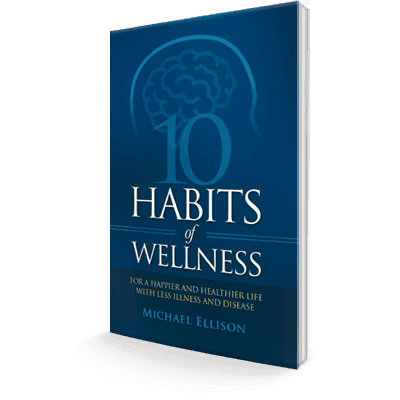Many of us often grapple with the common issue of feeling tired but unable to sleep. How to stay awake during the day because of lack of quality sleep is a question too many face.
Being sleep-deprived can make us feel tired and negatively affect our mood. This can affect how well we work, how we interact with others, and how we feel mentally and emotionally. Poor sleep can also make us feel heavy and sluggish.
Getting enough sleep is important to maintain good health and reduce the underlying causes of medical conditions. Not getting enough sleep can cause health problems like inflammation, heart disease, diabetes, and high blood pressure.
Not getting adequate sleep can raise your risk of developing these conditions. Ensure that you give priority to sleep for comprehensive health. It weakens the immune system, making you more susceptible to medical conditions such as infections and illnesses.


Lack of quality sleep can make it difficult to think clearly and leave you feeling heavy and sluggish. It can also lead to difficulties in memory retention and maintaining concentration. Additionally, it can affect your ability to react quickly. This increases the risk of accidents.
Furthermore, being sleep-deprived can exacerbate mental health problems, including anxiety, depression, and mood disorders. Insufficient sleep can negatively impact the quality of life. Let’s explore self-care opportunities to enhance sleep and revitalize a healthier you.
Prioritize Quality Sleep
The foundation of avoiding tiredness lies in getting quality sleep. Learning how to stay awake and alert relies on not only getting enough sleep but also not overdoing it. Additionally, not being tired is not just about the quantity of sleep but also the quality. If you’re tired but can’t sleep, try following a regular sleep schedule. This can help your body establish a healthy circadian rhythm.
Stick to going to bed and waking up at the same time every day to train your circadian rhythm. This consistency can improve your ability to fall asleep and stay asleep. Go to bed and wake up at the same time every day, even on weekends.
You can try using supplements to help you sleep better. Some options include valerian root extract, KSM-66 Ashwagandha, and lemon balm. These supplements can help you fall asleep faster and stay asleep longer, leaving you feeling refreshed.
Stay Hydrated
Dehydration is a common but often overlooked cause of fatigue. When your body feels heavy and sluggish, it could be because of inadequate water intake. To stay hydrated, strive to consume a minimum of eight glasses of water daily, each containing eight ounces.
Keep a water bottle with you and sip throughout the day. Consider infusing your water with one of the most powerful antioxidants and energy boosters known as hydrogen. You can also include hydrating foods like fruits and vegetables in your diet.
Eat Balanced Meals
Your diet plays a crucial role in how energetic you feel, such as when you feel sleepy. Consuming balanced meals rich in lean proteins, healthy fats, and complex carbohydrates can help maintain steady energy levels. Avoid sugary snacks and processed foods that lead to energy crashes.
Opt for nutritious food items like salmon, whole grain products, nuts, seeds, and fresh produce such as fruits and vegetables. Eating an anti-inflammatory diet can help you lose weight and lower your risk of medical conditions.
Physically Active
Exercise might be the last thing you want to do when you’re tired from work, but it can be incredibly beneficial. Physical activity boosts your energy by increasing the flow of oxygen-rich blood throughout your body. Aim for at least 30 minutes of moderate exercise most days of the week. Even a short walk during your lunch break can make a significant difference, leaving you feeling more energized.
Manage Stress
Chronic stress can leave you feeling tired and heavy and contribute to sleep disorders. Chronic stress can rob you of quality sleep, which multiplies the feeling of being tired during the day. The bottom line, chronic stress can leave you feeling mentally and physically exhausted.
Incorporate stress management techniques into your daily routine, such as journaling, practicing gratitude, staying physically active, deep breathing exercises, meditation, or yoga. Taking regular breaks and setting realistic goals can also help reduce stress levels and enhance quality sleep.

Limit Caffeine and Alcohol
Caffeine can give you a quick energy boost, but it may leave you feeling tired or feeling sleepy later on. Try to limit your caffeine intake, especially in the afternoon and evening, to avoid interfering with your sleep. Alcohol can make you feel sleepy initially. However, it can contribute to poor sleep at night and leave you feeling even more tired the following day.
Take Breaks and Move Around
If you are sitting at a desk for extended periods, your body might feel heavy and sluggish. Taking regular breaks to stand up, stretch, and get some physical activity can help alleviate this. Consider following the 20-20-20 rule: every 20 minutes, take a 20-second break to look at something twenty feet away. This practice can reduce eye strain, refresh your mind, and relieve the feeling of being tired from work.
Get Some Sunlight
Sunlight helps your body’s internal clock, called circadian rhythm, stay on track. This facilitates alertness during the day and promotes quality sleep at night. Allocate time each day to be outside, preferably during the morning hours. If you don’t get much natural light, try using light therapy for 20 minutes to mimic sunlight and improve sleep quality.
Practice Good Sleep Hygiene
Improving your sleep hygiene can address the issue of being tired but can’t sleep at night. Ensure your bedroom is a restful environment: cool, dark, and quiet. Invest in a snug duvet, bedding, mattress, and pillows to establish your own unique comfort. Try to avoid using electronic devices for at least an hour before going to bed. The blue light they emit can disrupt your body’s natural circadian rhythm, negatively influencing your sleep-wake cycle.

Consider Supplements
Sometimes, dietary gaps or lifestyle factors can contribute to fatigue. Taking supplements like B vitamins, CoQ-10, amino acids, beetroot, and iron can boost energy, reduce tiredness, and improve sleep. These supplements can provide a boost in energy levels. They can also help reduce feelings of tiredness. In addition, they may improve the quality of sleep at night.









